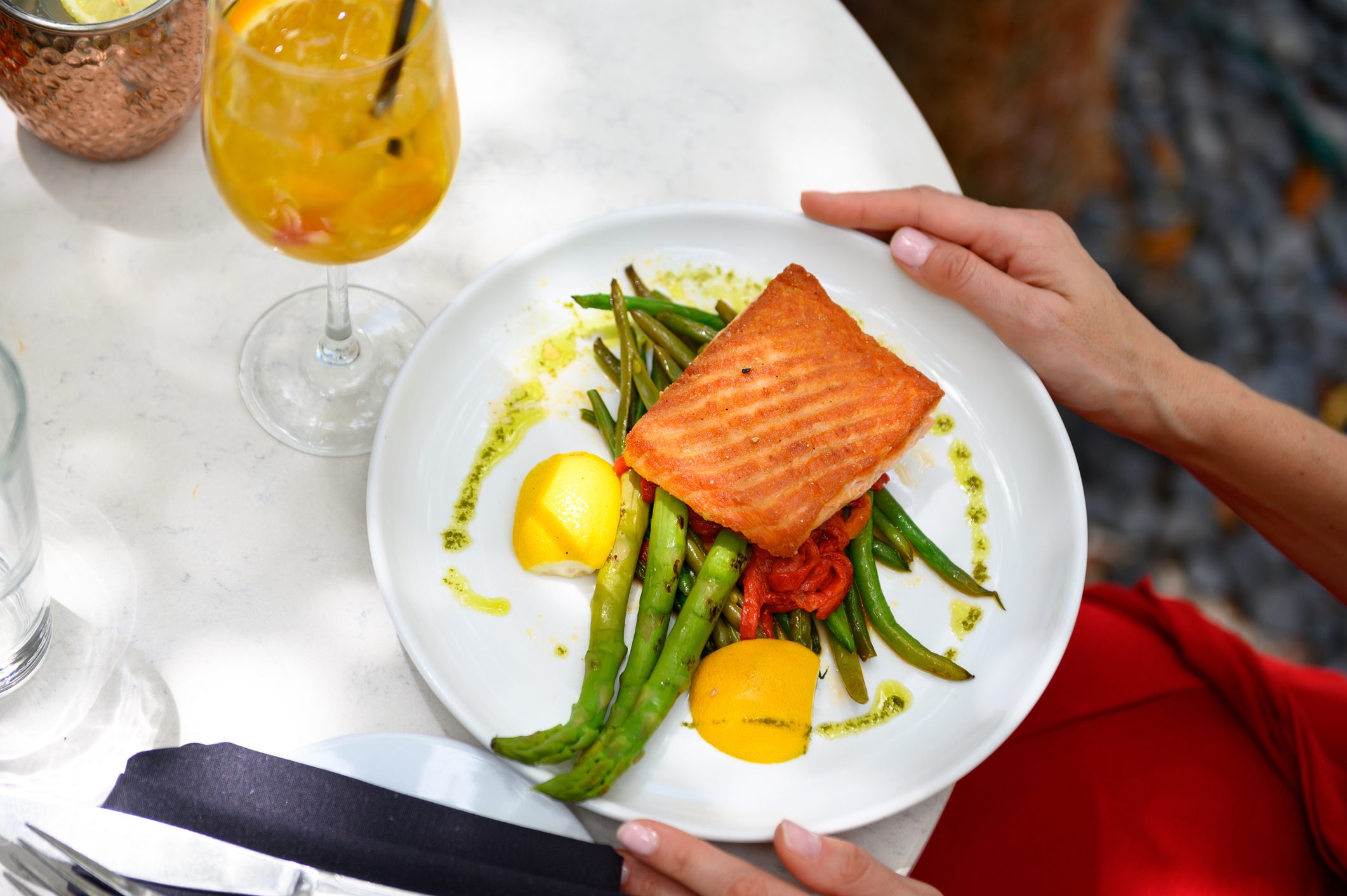You probably have that friend, colleague, or family member who argues that you can indulge in any food or beverage so long as you practice moderation.
I bet you know the type. They order fries with their burger at restaurants and enjoy margaritas with their chips and salsa at happy hour. Perhaps they even follow a diet plan that allows them to eat whatever they want if they tally up points or otherwise moderate how much they eat.
If you question whether something they eat or drink is healthy, they’ll trot out a familiar saying: “Everything in moderation.”
In my nearly four decades working with people, I’ve found that this approach can be a disaster for your waistline, your gut, and your overall health. It keeps you locked in a vicious cycle of hunger, cravings, and inability to lose weight.
“’Eat everything in moderation’, or diet diversity, is a long-standing public health recommendation,” researchers note in one review published in PLoS One. “Yet, remarkably, dietary diversity has never been clearly defined nor measured, and thus little is known about its actual impact on human health.”
Those researchers went on to conclude that little evidence exists for this approach, either for a healthy weight or type 2 diabetes. In fact, “everything in moderation” may increase waist circumference. Instead, they emphasize the importance of diet quality.1
I second that approach. When you choose nutrient-dense, healthy foods, your body naturally gets the message to stop eating. As a result, you maintain steady blood sugar levels, you lose weight and keep it off, and you have all-day energy and focus.
Moderation is a slippery slope, because so often people believe they can have just one cookie and easily avoid eating the whole box. Unfortunately, this sends you back into the downward spiral of cravings, blood sugar crashes, food intolerance, and weight gain (and you’ll definitely go back to polish off the rest of those cookies).
The next time someone reminds you about “everything in moderation,” offer these three rebuttals that turn that saying on its head.
1. It Doesn’t Account for Harmful Foods
Moderation overlooks the fact that we need zero amounts of certain things, like artificial sweeteners and fructose.
Consider the studies that show saccharin, sucralose, and other fake sweeteners can wreak havoc on your gut, destroying the bacterial diversity so critical for overall health.2
Likewise, studies indicate that fructose is involved in the development of non-alcoholic fatty liver disease (NAFLD), which has reached epidemic levels even in teens who consume sugar-sweetened sodas.3
Damaged and trans fats are another zero-tolerance ingredient that lurk even in “healthy” places, including vegetable oils.
“Margarine, Crisco vegetable shortening, fake-butter spreads—these are the hydrogenated trans fats we were advised to eat instead of butter and lard for the sake of our health,” says Mark Hyman, MD, in Food. “Bad advice, it turns out, because they’re far more toxic than the saturated fats they were meant to replace.”
I could go on, but you get the message: moderation plays no part in certain foods.
2. It Sets You Up for Food Intolerance
For some people, just a little bit of gluten, soy, or dairy can be a giant menace. Continuously enjoying “just a little bit” of something your body can’t tolerate can also set you up for food intolerance over time.
Eating these foods repeatedly can lead to an immune response, where antibodies build up to fight that food and send your body a message. You also get stuck with inflammation that causes you to hold on to weight and age faster.
You may notice you don’t feel so well right after eating certain foods. Other times, it may take a while for you to have symptoms because the response takes place over hours or even days. This makes it tougher to sleuth out what’s made you feel crummy.
If you’ve been eating a lot of a certain food your system doesn’t like, you eventually exceed your sensitivity threshold. Even if you’re only eating small amounts of certain foods, immune complexes can accumulate and wreak havoc on your body.
Even under the best circumstances, you may be exposed to potential food sensitivities. DefendZyme is an ideal digestive enzyme supplement when you’re not entirely certain about a meal’s ingredients. This unique combination of digestive support compounds is designed to minimize the adverse effects of the accidental consumption of gluten, dairy, soy, and egg proteins as well as starchy foods and sucrose.* Order yours here.
3. It Can Lead to Addiction
That “betcha can’t eat just one” chip commercial was more revealing than it perhaps wanted to be. Especially when you indulge in a trigger food or beverage, these things set you up for nagging cravings.
It’s not a lack of willpower if you’ve ever promised yourself you’d eat one Oreo and ended up consuming half the sleeve. You’ve probably read about those studies where rats had the choice of cocaine or something sweet (in this case, Oreos). Interestingly, they went for the sweet stuff as much as the drugs.
According to Valerie Strauss in The Washington Post, researchers in one study concluded “rats find Oreos just as addictive as cocaine because the cookies stimulate the brain in the same way some drugs do. And the rats went first for the cream in the middle, just like lots of human Oreo consumers.”
She noted (according to the study’s press release) “that eating cookies activated more neurons in the brain’s ‘pleasure center’ than exposure to drugs of abuse.”4
Indeed, when you eat sugar, your brain produces huge amounts of dopamine. This neurotransmitter plays a role as a “reward center” that allows you to feel pleasure and satisfaction.
David Kessler, MD, a former Food and Drug Administration (FDA) commissioner, offers another reason why rats—and by extension, humans—can’t resist the sweet stuff.
Kessner coined the term “hyperpalatable” to describe the addictive combination of sugar, fat, and salt in restaurant and processed foods that make putting the brakes on eating nearly impossible. Manufacturers spend billions of dollars to create these can’t-put-down foods.5
You’ve likely experienced hyperpalatability if you’ve ever dove into a plate of chili-cheese nachos and couldn’t stop reaching for them, or you promised yourself one bite of caramel apple cheesecake (but couldn’t put the fork down).
Final Thoughts: A Satisfying Alternative to Moderation
Instead of attempting moderation and setting yourself up for failure or deprivation, I recommend implementing simple swaps, or what I call “lateral shifts.” These are upgraded, nutrient-packed versions of your favorites, without the sugar or food intolerances found in their traditional versions.
On my recipes page, you’ll find lateral shifts for many of your favorite foods and beverages. Here are five simple swaps to get you started:
- Trade your hot cocoa for this Mexican Hot Chocolate
- Trade your pasta for Zucchini Bolognese
- Trade your brownies for Avocado Fudge Brownies
- Trade your cheese for this Dairy-Free Cheese
- Trade your margarita for Kevita® Margaritas
The views in this blog by JJ Virgin should never be used as a substitute for professional medical advice. Please work with a healthcare practitioner concerning any medical problem or concern. The information here is not intended to diagnose, treat, or prevent any disease or condition. Statements contained here have not been evaluated by the Food and Drug Administration.
*These statements have not been evaluated by the Food and Drug Administration. This product is not intended to diagnose, treat, cure, or prevent any disease.
References:
- Otto MC, Padhye NS, Bertoni AG, Jacobs DR Jr, Mozaffarian D. Everything in Moderation–Dietary Diversity and Quality, Central Obesity and Risk of Diabetes. PLoS One. 2015 Oct 30;10(10):e0141341. doi: 10.1371/journal.pone.0141341. PMID: 26517708; PMCID: PMC4627729.
- Del Pozo S, Gómez-Martínez S, Díaz LE, Nova E, Urrialde R, Marcos A. Potential Effects of Sucralose and Saccharin on Gut Microbiota: A Review. Nutrients. 2022 Apr 18;14(8):1682. doi: 10.3390/nu14081682. PMID: 35458244; PMCID: PMC9029443.
- Roeb E, Weiskirchen R. Fructose and Non-Alcoholic Steatohepatitis. Front Pharmacol. 2021 Feb 8;12:634344. doi: 10.3389/fphar.2021.634344. PMID: 33628193; PMCID: PMC7898239.
- Wiss DA, Avena N, Rada P. Sugar Addiction: From Evolution to Revolution. Front Psychiatry. 2018 Nov 7;9:545. doi: 10.3389/fpsyt.2018.00545. PMID: 30464748; PMCID: PMC6234835.





